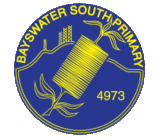English
We believe that active and effective participation in society depends on the ability to speak, listen, read, view, and write with confidence, purpose, and enjoyment in a wide range of contexts.
"The fire of literacy is created by the sparks between a child, a book and the person reading."
Mem Fox, Australian writer of children’s books and an educationalist specialising in literacy

Bayswater South Primary School bases its English curriculum on the Victorian Curriculum which provides a single curriculum for levels Prep to Year 10. This curriculum offers flexibility for teachers to tailor their teaching in ways that provides relevant and engaging learning and assessment opportunities for all students, regardless of their abilities.
The Victorian English curriculum aims to ensure that students:
- learn to listen to, read, view, speak, write, create and reflect on increasingly complex and sophisticated spoken, written and multimodal texts across a growing range of contexts with accuracy, fluency and purpose.
- appreciate, enjoy and use the English language in all its variations and develop a sense of its richness and power to evoke feelings, convey information, form ideas, facilitate interaction with others, entertain, persuade and argue.
- understand how Standard Australian English works in its spoken and written forms and in combination with non-linguistic forms of communication to create meaning.
- develop interest and skills in inquiring into the aesthetic aspects of texts and develop an informed appreciation of literature.
There are 3 strands in English:
- Language: knowing about the English language.
- Literature: understanding, appreciating, responding to, analysing, and creating literature.
- Literacy: expanding the repertoire of English usage.
At Bayswater South, students participate in Reader’s Workshop literacy activities which focus on developing students’ strategic comprehension strategies.
These strategies are Making Connections, Predicting, Questioning, Monitoring, Summarising and Visualising.
Students are offered four to five hours of Reading Literacy per week.
Students participate in four to five hours of writing per week and are introduced to a variety of writing genres such as Recounts, Narratives, Persuasive, Information Reports, Poetry and Explanations.
At Bayswater South we offer intervention programs for students at risk. Students are withdrawn from class individually or in small groups by trained personnel and staff to deliver the program.
We believe that active and effective participation in society depends on the ability to speak, listen, read, view, and write with confidence, purpose, and enjoyment in a wide range of contexts. The study of English, and the broader concept of literacy, is about the appropriate and effective use of language, the use of language as a means of learning and the development of knowledge about language. Students are exposed through our IB PYP units of inquiry to many real world situations and purposes for using their literacy knowledge and competencies (to communicate, share information, stimulate thinking, articulate thought and formulate questions).
In English, students are actively involved in reading, viewing, writing, comparing and talking about texts. Students are encouraged to explore and engage with a range of literature, every day, and media texts from their own and different cultures, to take pleasure in using texts to explore ideas and think critically about their world and the global community. Knowledge about how language functions and how it both reflects and shapes social attitudes, assists students to achieve a better understanding of themselves, their culture, and the contemporary world. They are then able to use the texts they read and listen to as resources in creating and constructing their own.
Teaching and learning is differentiated to respond to each student’s readiness, interest, and learning needs.
Literacy assessment gives students opportunities to demonstrate, in an authentic manner, what they know and understand about language. Developing a shared language to talk about their learning allows students and teachers to identify strengths and offer clear and positive suggestions for improvements.
All curriculum areas provide opportunities for literacy learning – all teachers are teachers of language.
The Victorian Curriculum is the core framework used to inform planning and assessment, alongside a variety of ongoing assessment measures to validate current student knowledge and competency.

You must be logged in to post a comment.